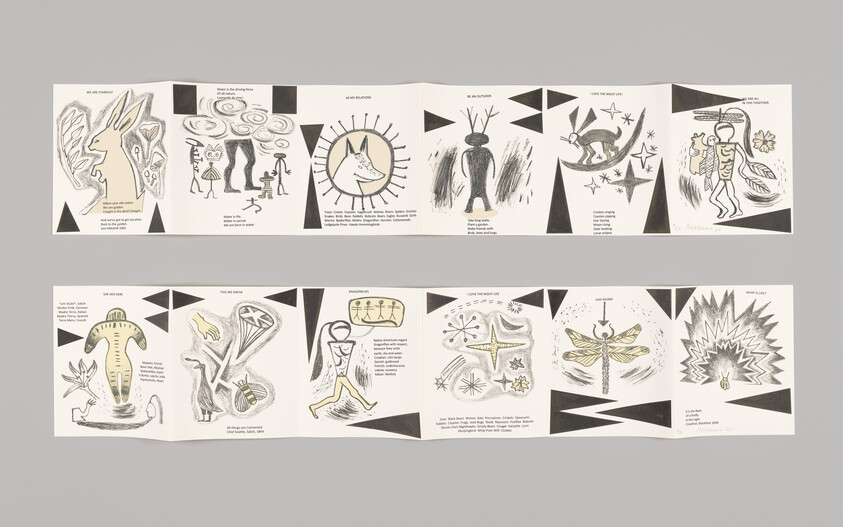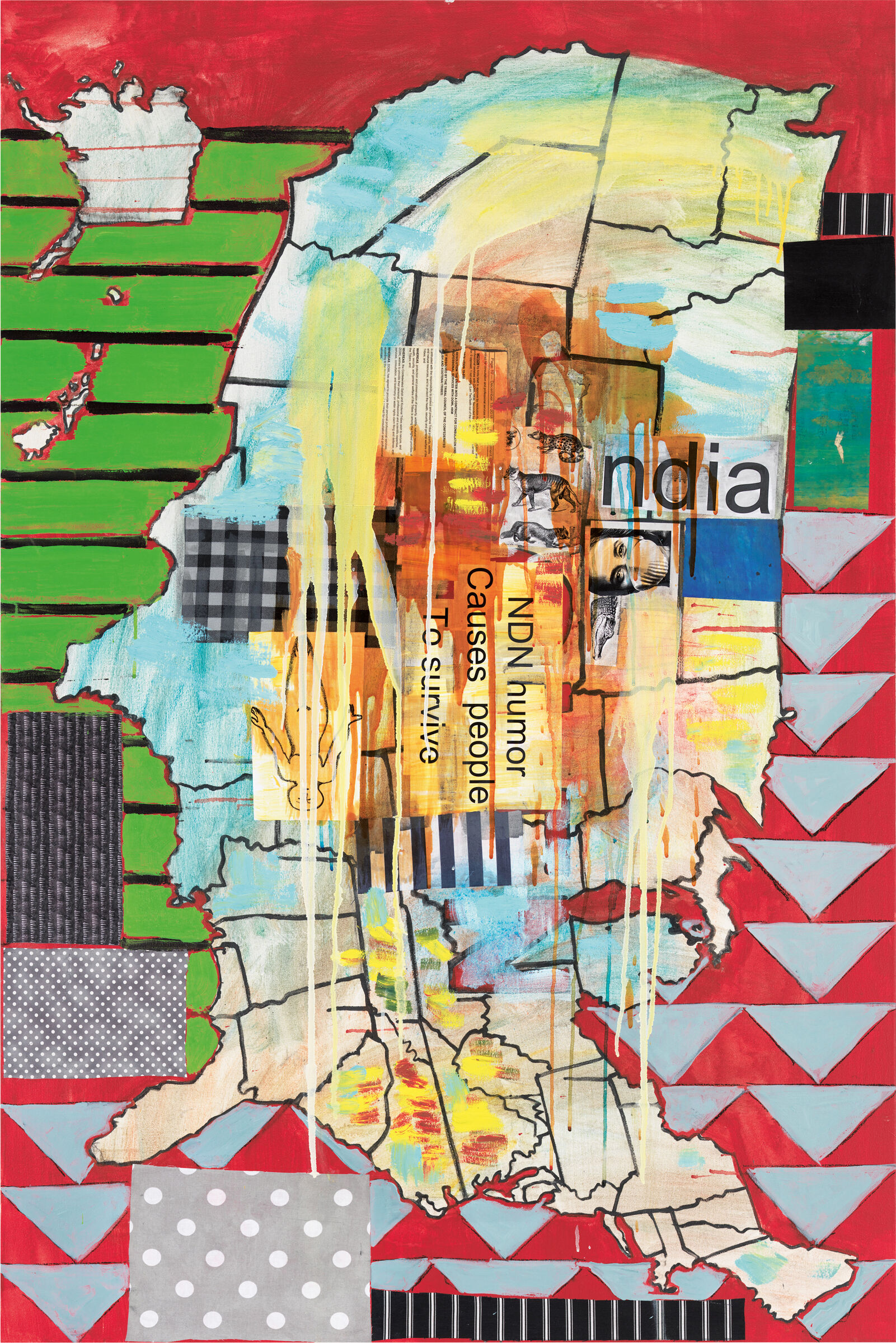Paper Dolls for a Postcolonial World, 1991
Mar 28, 2023
0:00
Paper Dolls for a Postcolonial World, 1991
0:00
Jaune Quick-to-See Smith: I made some paper dolls based on Barbie and Ken. Their name is Barbie Plenty Horses, which is an old family name at home for people in my tribe, Barbie Plenty Horses and Ken and Bruce, the little boy. And how they got a good education by the Catholic priests, learning how to polish door knobs and clean floors.
Narrator: The drawings recount the many traumas that Native Americans have experienced at the hands of the U.S. government. The first one shows a Jesuit Priest—an educator, and a leader in the policy of forcibly divorcing Native American children and youth from their languages and cultures.
Jaune Quick-to-See Smith: That is the story of genocide right there. Part of it. Genocide isn't just slicing our throats and putting a bullet in our heads, that is back in our families. We all know that. But it is what the government and the churches have done to us. When they took our language away–like bam! Everything that we had in life, my father and all my aunties and uncles that we knew, all the knowledge that we had, our language had given us names of all the mountains at home, all the rivers, all everything, our language gave us all this, told us who we were and, and how we got here. It’s like, they gave us a lobotomy. That's what they did to us when they take away your language and parts of your culture and it's not there and they do it in one generation, your head has a big hole in it.


